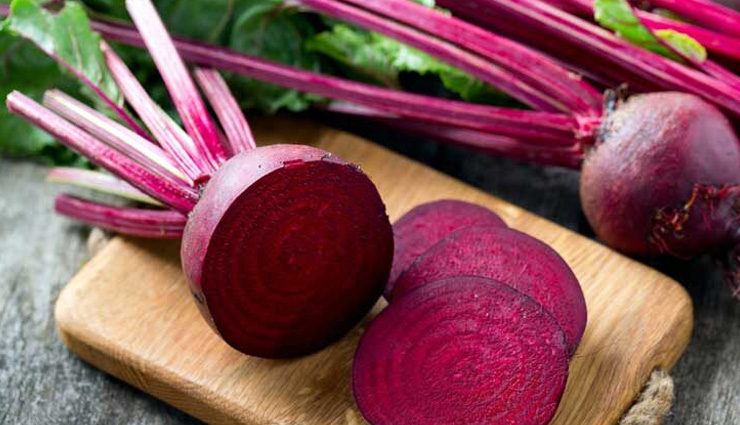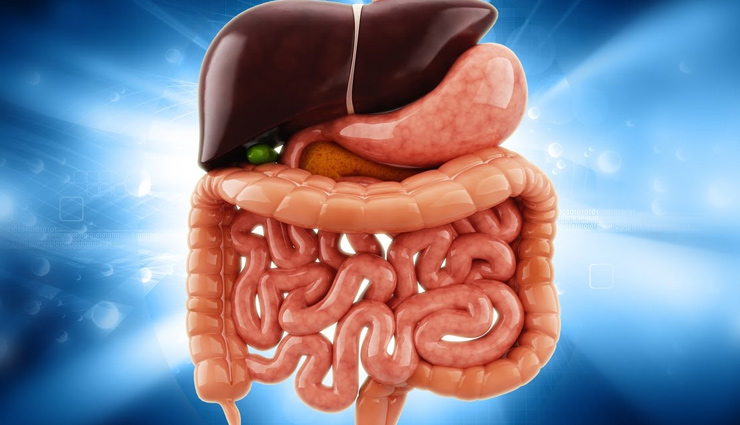- Home›
- Healthy Living›
- 8 Least Known Health Benefits Of Beetroot
8 Least Known Health Benefits Of Beetroot
By: Priyanka Maheshwari Fri, 05 Apr 2024 12:09:27

Beetroot, scientifically known as Beta vulgaris, is a root vegetable that belongs to the Chenopodiaceae family, which also includes spinach and chard. This vibrant and nutritious vegetable is renowned for its deep red color, earthy flavor, and versatility in culinary applications. Originally cultivated in the Mediterranean region, beetroot has been enjoyed for centuries and has gradually spread worldwide.
Beetroot is prized not only for its culinary uses but also for its impressive nutritional profile. It is rich in essential vitamins, minerals, and antioxidants, making it a valuable addition to a balanced diet. Among its notable nutrients are folate, manganese, potassium, and vitamin C. Additionally, beetroot contains unique phytonutrients like betalains, which contribute to its vivid hue and offer potential health benefits, including anti-inflammatory and antioxidant properties.
In the kitchen, beetroot can be enjoyed in various forms, from raw to cooked, and is often used in salads, soups, juices, and even desserts. Its natural sweetness and robust flavor make it a versatile ingredient that adds depth and color to dishes. Furthermore, beetroot is increasingly recognized for its potential health benefits, including supporting heart health, promoting digestion, and aiding in athletic performance due to its nitrate content, which may enhance blood flow and oxygenation.

# Heart Health: Beetroot contains high levels of dietary nitrates, which are converted into nitric oxide in the body. Nitric oxide helps dilate blood vessels, improve blood flow, and lower blood pressure, thus supporting overall heart health and reducing the risk of cardiovascular diseases.

# Improved Athletic Performance: The nitrate content in beetroot has been shown to enhance athletic performance by improving oxygen utilization and increasing endurance during physical activities. Consuming beetroot juice or supplements before exercise may lead to improved stamina and reduced fatigue.

# Anti-Inflammatory Properties: Beetroot contains betalains, which are potent antioxidants with anti-inflammatory properties. These compounds help reduce inflammation in the body, potentially lowering the risk of chronic diseases such as arthritis and certain types of cancer.

# Digestive Health: Beetroot is rich in dietary fiber, which promotes healthy digestion and regular bowel movements. Fiber also helps maintain a healthy gut microbiota by providing food for beneficial bacteria, thereby supporting overall gut health.

# Brain Health: The nitrates in beetroot may also have cognitive benefits. Nitric oxide helps increase blood flow to the brain, which can enhance cognitive function, improve mental clarity, and potentially reduce the risk of age-related cognitive decline and dementia.

# Detoxification: Beetroot contains compounds called betalains, which have been shown to support liver function and aid in detoxification processes. Consuming beetroot regularly may help the body eliminate toxins and promote overall liver health.

# Weight Management: Beetroot is low in calories and fat but high in fiber, making it a filling and satisfying addition to meals. The fiber content helps promote feelings of fullness, reducing overall calorie intake and supporting weight management efforts.

# Improved Skin Health: The antioxidants and anti-inflammatory properties of beetroot may help promote healthy skin by reducing oxidative stress, fighting inflammation, and supporting collagen production. Consuming beetroot regularly may contribute to a clearer complexion and a youthful appearance.





